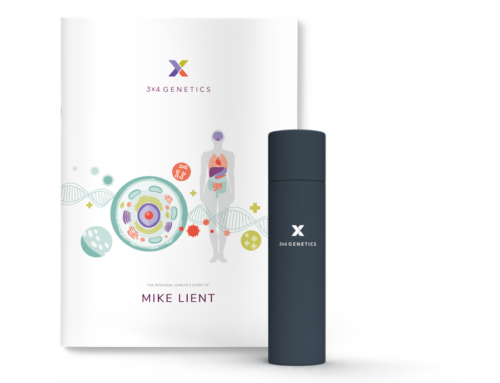Here at Culinary Archeology, we believe that knowing your genes is the key to personalized care.
Why? Because you can learn a lot from your genes! Unfortunately, many people tend to think that genetictesting is just for determining your ancestry, or checking to see if you’re predisposed to a specific disease or not. And while those things are true, genetic testing allows you to gain insights into how your genes function and how they impact your overall health and wellness.
When you take a genetic test, it looks at a selection of genes that work together to provide you with a blueprint for how your own body functions. Here are the major areas where genetic testing can give you insight into your body’s functionality, and where you can make better diet and lifestyle choices that will be more optimized for you.
Cellular
Our genes have an impact on our bodies all the way from the cellular level, and can have an effect on the following processes:
Methylation: This is the process of repairing cells, making new DNA, and ensuring that your cells are working well overall. A genetic test can give you insight into how well this process is working.
Inflammation: The right amount of inflammation in the body is healthy, and helps speed up the healing process. Chronic disease appears when there’s too much inflammation — and you can learn through genetic testing how well your genes keep inflammation at bay.
Oxidative Stress: Unchecked oxidative stress can lead to fatigue, memory loss, and other disease, and you can learn how well your genes handle this kind of stress.
Detoxification: A person’s genes can inform how their body can dispose of toxins that build up. You can learn how well your cells work to detoxify your body, and if you need to change your environment to reduce toxins.
Systems
Genes also play an impactful role in keeping your systems functioning and communicating with one another. Genetic testing can give you insights into your mood and behavior changes, as well as how to improve your memory and brain health. It can also inform you on your histamine tolerance, as genes regulate histamine production. You can also gain insights into your hormonal balance as well as your glucose and insulin regulation. You can also learn more about how your genes affect your joints and your bone health.
Cardiovascular
Our genes also contribute to a well-functioning cardiovascular system in the following ways:
Blood clotting: Certain genes affect how well your blood clots, so genetic testing can help you determine if you need to take steps to stave off a stroke, heart attack, or other clotting issues.
Cholesterol: Genetic testing can also give you insight into how your body stores and metabolizes cholesterol, which can help you make better food choices.
Vascular Health: Specific genes also contribute to the strength of your blood vessels, so genetic testing can give insights into how strong or weak your circulatory system is.
Blood Pressure: Certain genes also impact your heart’s ability to contract and relax, which may impact your blood pressure.
Energy
Genetic testing can also uncover what’s affecting your energy levels and weight management, as specific genes can influence things like your appetite and how satiated or full you fill at the end of a meal. Genes can also influence something called adipogenesis, or the storage and release of fat cells, as well as whether fat triggers excess inflammation. They also influence how easy or difficult it would be for you to gain or lose weight. Genetic testing can also give you insight into how your body expends energy and burns calories as well.
Activity
You can also learn more about how your body responds to various types of activities by learning more about your genes. Since genes influence aerobic training and oxygen usage, a genetic test can provide insights into your fitness levels and your potential. It can also tell you whether your body is more conditioned for endurance exercises, like running or biking, or for more power exercises, like sprinting or weight lifting. Knowing how your genes impact bone and joint health can also help you mitigate any injuries you may experience while exercising as well.
Nutrients
Finally, your genes can tell you a lot about what types of nutrients are best for your body, and how well your body absorbs and metabolizes them. Your genes can affect how your body processes caffeine, iron, fatty acids, choline, folate, gluten, vitamin D, salt, vitamin C, and vitamin B12, and knowing how they do can help you make better food choices.
Putting It All Together
As you can see, genetic testing can tell you a lot more about you than just your ancestry! Genetic testing is the way to discover how your individual body works, and which lifestyle and diet choices you can adopt to help optimize your health, wellness, and longevity.
Ready to start your personalized health journey?




